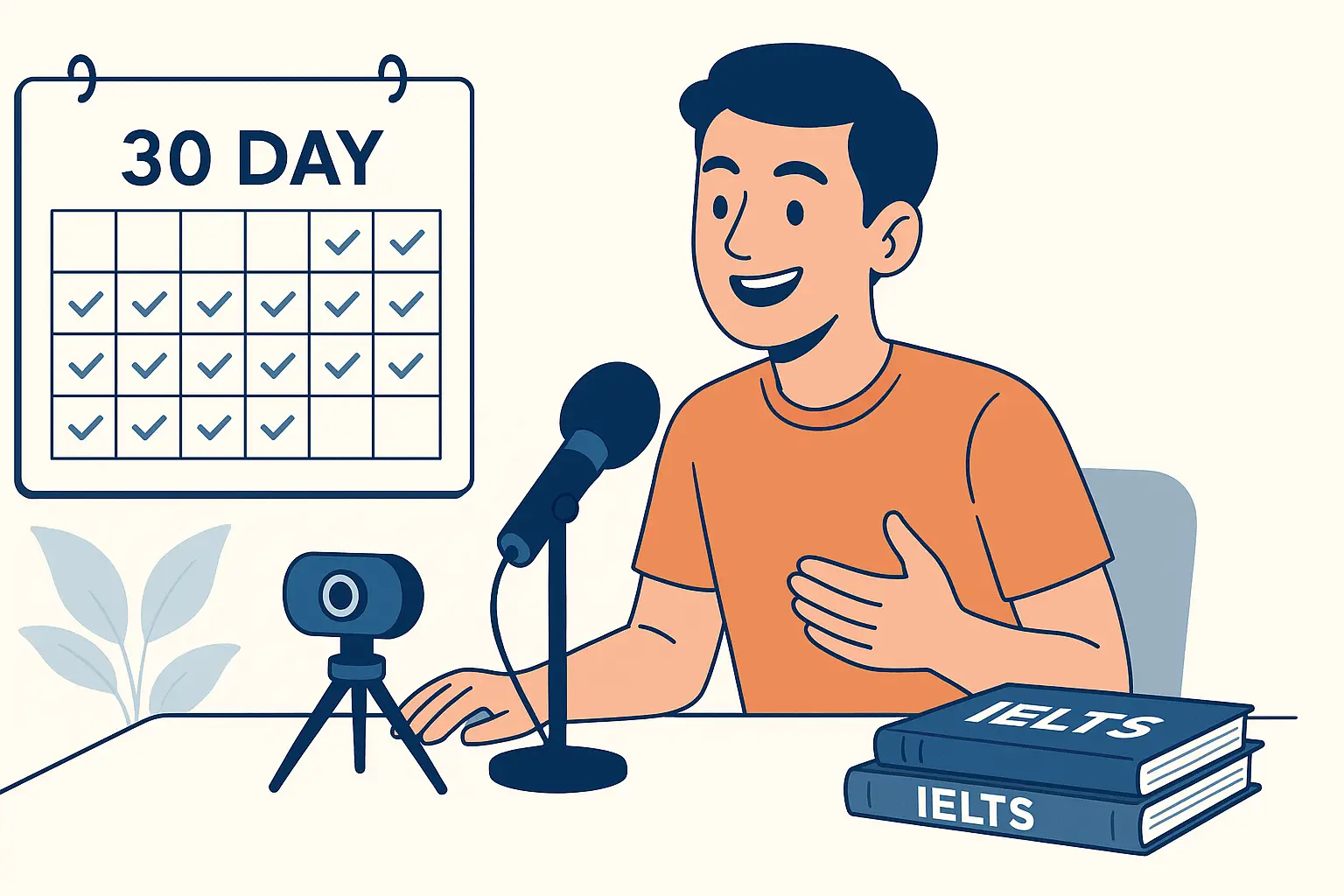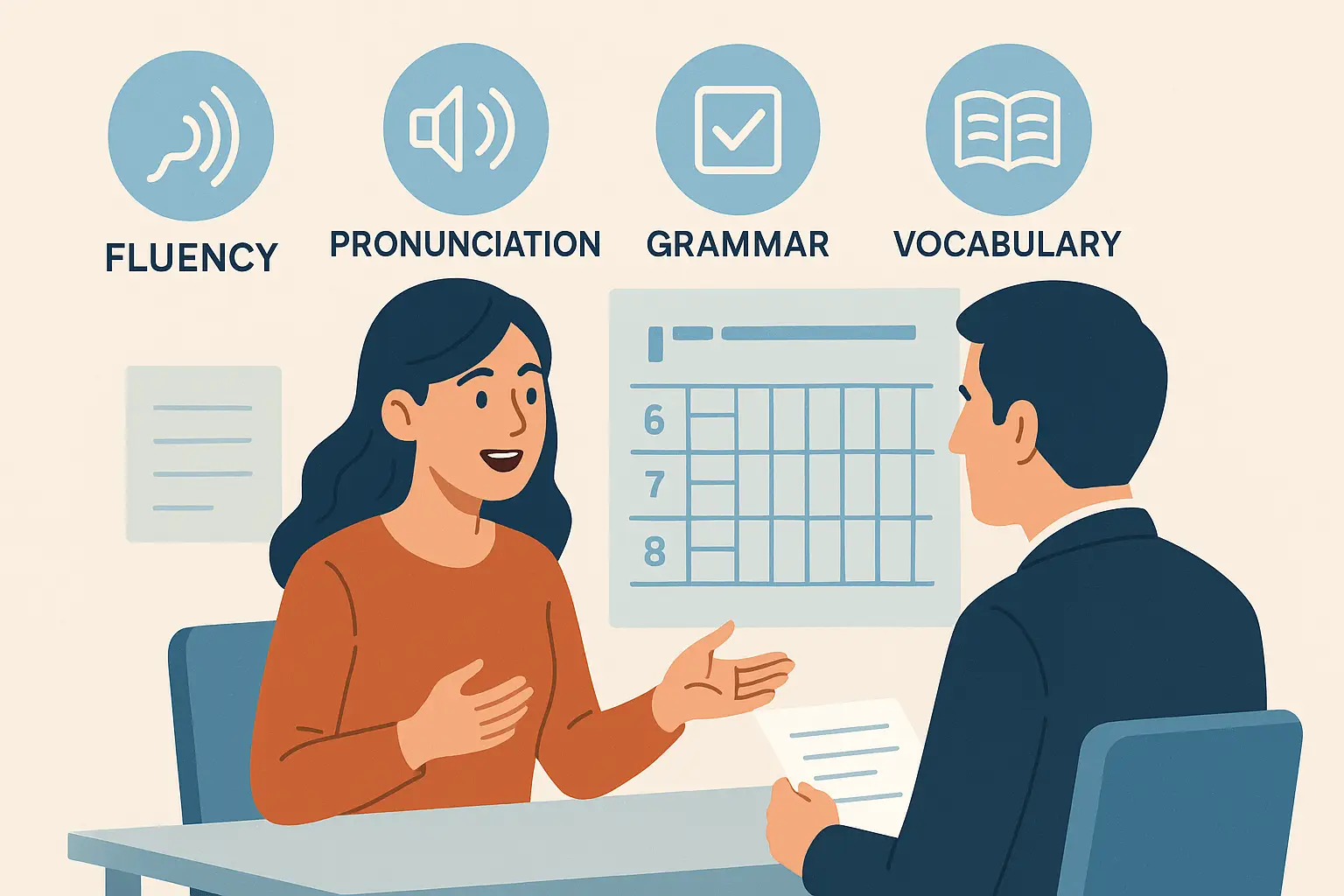As an international IELTS teacher working with students from over 30 countries, I’ve seen firsthand how mastering collocations for IELTS Speaking can instantly boost a candidate’s band score. Whether you’re aiming for a Band 7 or dreaming of Band 9, using natural, accurate word combinations is essential — and that’s what this guide is here to help with.
Why Collocations Matter in IELTS Speaking
If you’ve ever said “do a mistake” instead of “make a mistake,” you’re not alone. These small slips may seem harmless, but they can lower your lexical resource score — a key criterion in the IELTS Speaking Band Descriptors.
Many of my students struggle not because they lack ideas, but because their phrases sound unnatural. When I correct them, they often say, “I didn’t know that was wrong!” That’s because they’re translating word-for-word instead of using real English collocations — common pairings native speakers use naturally.
What Are Collocations?
In simple terms, collocations are words that often go together. They help you sound fluent and natural. Here are a few examples I regularly teach in class:
- ✅ Make a decision (❌ Do a decision)
- ✅ Take a risk (❌ Do a risk)
- ✅ Do homework (❌ Make homework)
You don’t need to memorise every phrase — but learning the most frequent and relevant collocations for IELTS Speaking can give you a serious advantage in the exam.
Real Student Challenges and My Classroom Solutions
In one of my IELTS Speaking workshops, a student from Turkey kept using phrases like “do exercise” (instead of “take exercise”) and “make party” (instead of “have a party”). These small mistakes added up. I introduced a simple solution: a daily collocation notebook. Every time they heard or read a native-sounding phrase, they wrote it down, reviewed it aloud, and used it in mock answers. In just two weeks, their fluency and natural tone improved dramatically.
I now recommend this practice to every learner, whether they’re studying on their own or through platforms like British Council or IDP IELTS.
100+ Ready-to-Use Collocations for IELTS Speaking
Here’s a curated list of collocations that appear frequently in real IELTS Speaking tests, organised by common topic areas:
📘 Education
- Make progress
- Do homework
- Take notes
- Pass an exam
- Miss a class
🧠 Work and Career
- Get a promotion
- Work overtime
- Meet a deadline
- Make a living
- Gain experience
❤️ Feelings and Emotions
- Feel proud
- Lose temper
- Show interest
- Express feelings
- Burst into tears
🏋️ Health and Fitness
- Catch a cold
- Take medicine
- Go on a diet
- Do exercise
- Suffer from stress
📱 Technology
- Surf the internet
- Send an email
- Download an app
- Make a call
- Scroll through social media
🗺️ Travel
- Book a ticket
- Miss a flight
- Go abroad
- Take a trip
- Pack luggage
🏠 Daily Life
- Do chores
- Make a mess
- Take a shower
- Cook dinner
- Set the table
Want more? You’ll find even more topic-wise collocations in our IELTS Speaking Vocabulary & Expressions Guide.
How to Learn Collocations Effectively
Here’s what I recommend to my students worldwide:
- Don’t memorise. Instead, learn collocations in chunks. For example, instead of “decision,” learn “make a decision.”
- Use them in your speaking answers. After learning “gain experience,” practise saying:
“I hope to gain experience through an internship abroad.”
- Record yourself. Listen back to spot unnatural phrasing and replace it with appropriate collocations.
- Read and notice. While reading news or sample answers, underline or highlight collocations. This builds passive awareness.
- Check out our full IELTS Speaking Guide for grammar, fluency, and pronunciation tips that go hand-in-hand with mastering collocations.
My Personal Strategy: From Mistakes to Mastery
Many learners ask me, “How many collocations should I know for IELTS?” There’s no magic number. But if you consistently use around 50–100 natural collocations in your responses, the examiner will notice.
A student of mine in Vietnam was stuck at Band 6.5 for months. We focused on just 5 new collocations each day for 3 weeks, and she finally hit Band 7.5 — simply by sounding more like a native speaker and avoiding robotic phrasing.
Final Thoughts
Learning collocations for IELTS Speaking is not about memorising fancy phrases. It’s about choosing the right combinations that sound natural, are grammatically accurate, and reflect how native speakers actually talk. Master this, and you’ll not only boost your lexical resource score — you’ll feel more fluent and confident every time you speak.
FAQs: Collocations for IELTS Speaking
Q1: Can I use idioms instead of collocations in IELTS Speaking?
Yes, but only if they sound natural and relevant. Collocations are safer and more reliable for boosting your lexical resource score.
Q2: How many collocations should I learn per day?
Aim for 5–10 per day. Focus on quality and usage, not quantity.
Q3: Are collocations important for Writing too?
Absolutely. But in Speaking, they help sound natural, which is key for fluency and pronunciation scoring.
Q4: Will the examiner penalise me for wrong collocations?
Not directly, but unnatural combinations can affect your fluency and lexical resource scores.
Q5: Where can I find more resources for collocations?
Visit ielts.org or follow my full IELTS Speaking training series on IELTS ZONE.




